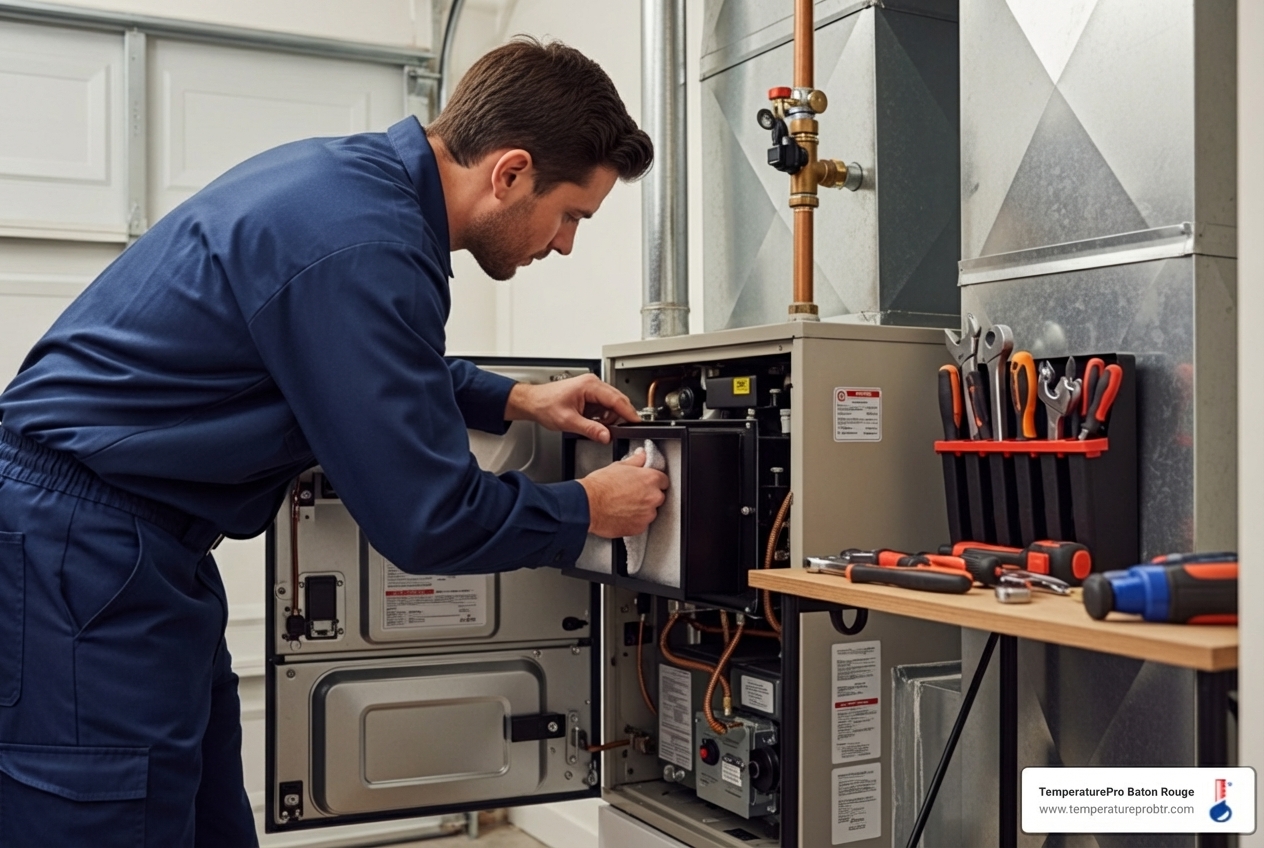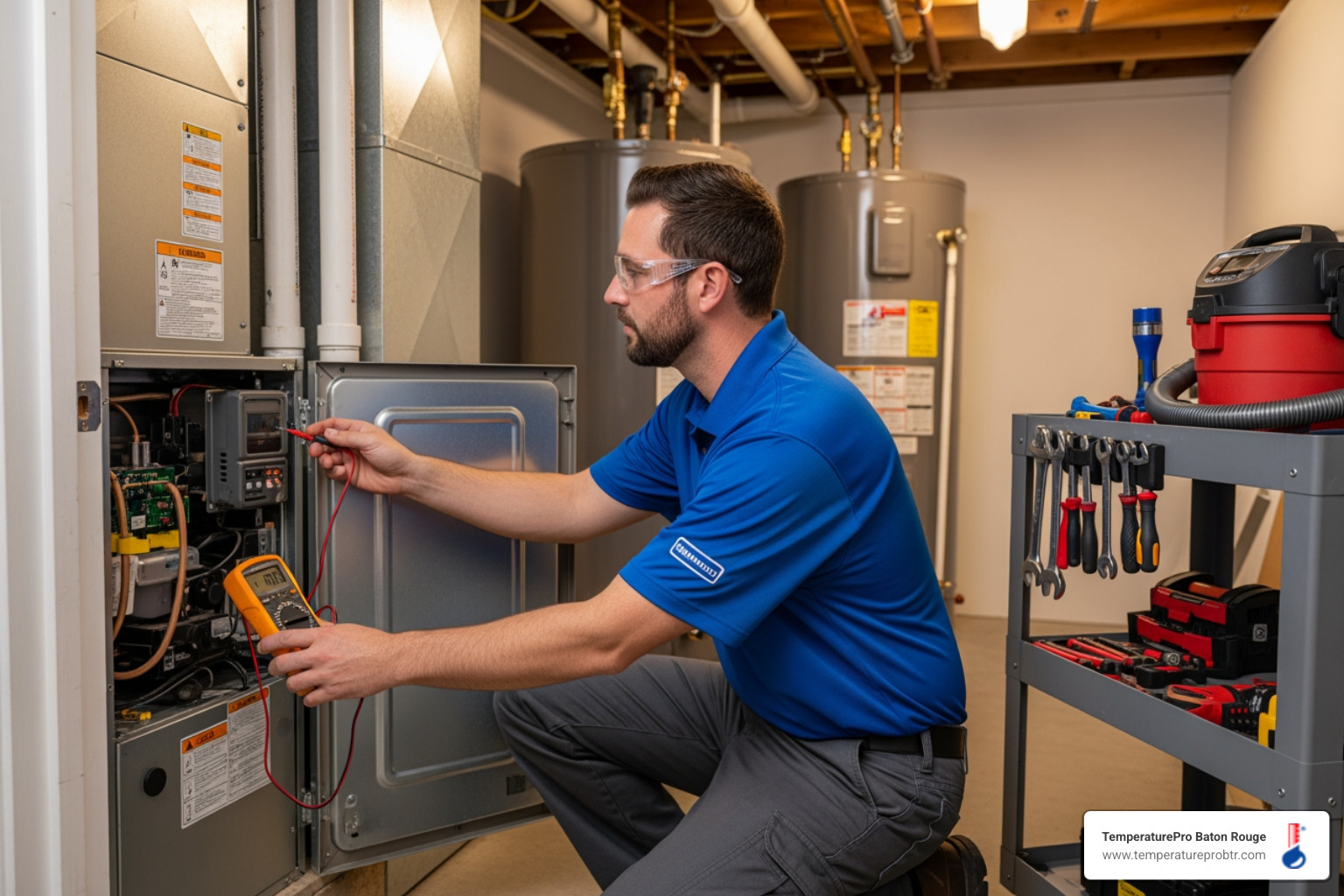The Cold Truth: What to Do When Your Heating System Fails in Port Allen
Don't freeze! Learn what to do when your heating blowing cold air in Port Allen, LA. DIY checks & expert repair solutions.
Why Your Heater Might Be Blowing Cold Air Instead of Warming Your Home
When your heating blowing cold air in port allen la happens on a chilly winter night, it's more than just uncomfortable—it's frustrating. Port Allen winters might not reach freezing temperatures often, but lows in the 40s still make you reach for that thermostat. You expect warm, cozy air to flow through your vents, but instead, you get a blast of cold. This problem is surprisingly common, and the good news is that many causes have straightforward solutions you can tackle yourself before calling for help.
Quick Diagnosis Guide for Cold Air from Your Heater:
- Thermostat Issues - Check if it's set to "HEAT" mode and the fan is on "AUTO," not "ON"
- Clogged Air Filter - A dirty filter restricts airflow, causing the system to overheat and shut down
- Pilot Light or Ignition Problems - Gas furnaces need a working flame to generate heat
- Clogged Condensate Line - High-efficiency systems can shut down if drainage is blocked
- Ductwork Leaks - Heated air escapes before reaching your living spaces
- Heat Pump Defrost Cycle - A temporary and normal function that can feel like cold air
If you're dealing with heating problems, you'll find comprehensive guidance in our complete heating services overview, and when you need immediate expert help, our team is ready to diagnose and repair your system quickly.
This guide walks you through the most common reasons your heating system blows cold air and shows you which problems you can fix yourself versus when it's time to call a professional. We'll cover everything from simple thermostat adjustments to more complex issues like reversing valve failures in heat pumps, all custom to the unique climate challenges Port Allen homeowners face.
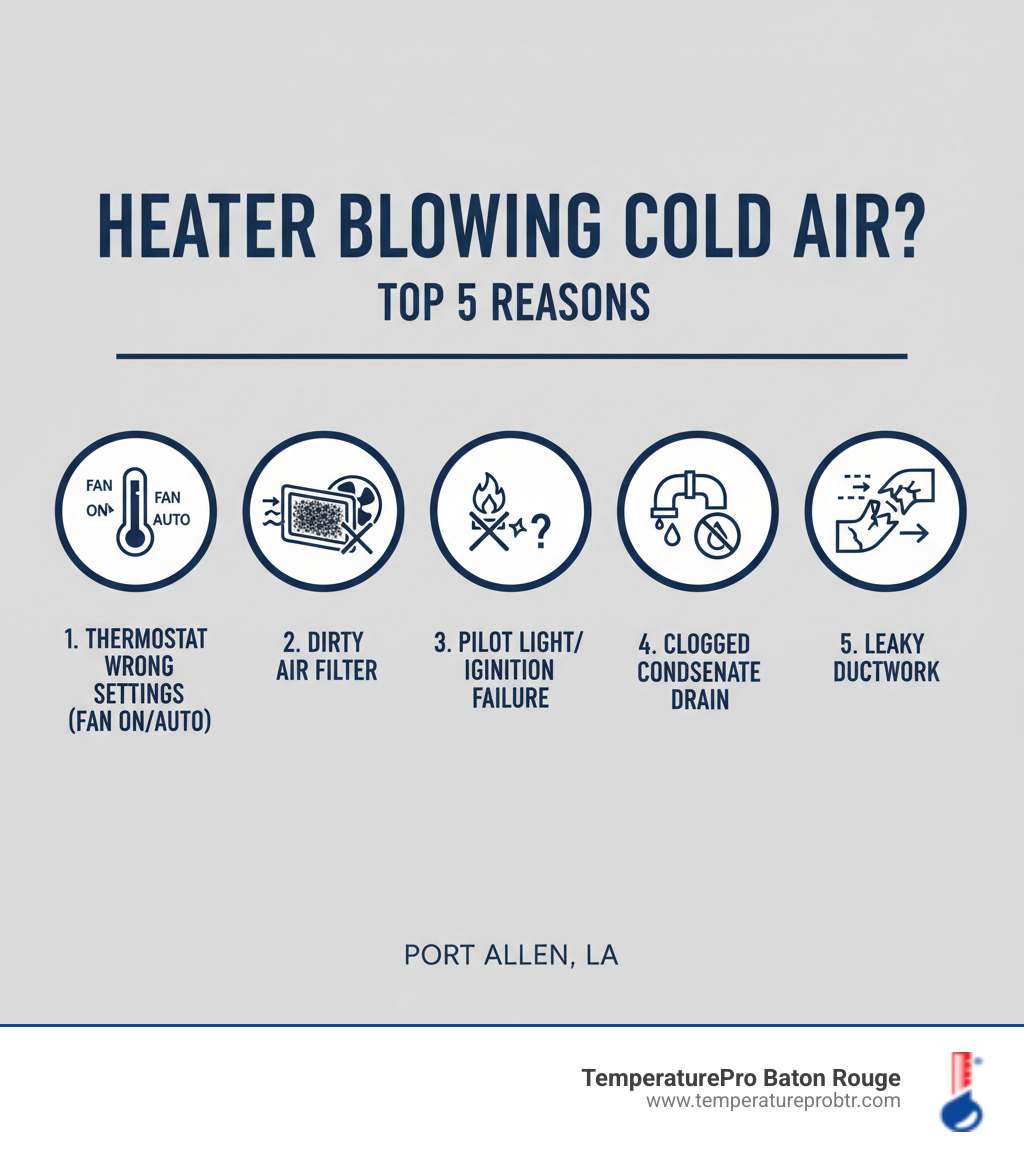
First Steps: Simple Troubleshooting You Can Do Now
Before you call a professional, your heating blowing cold air in Port Allen, LA problem might have a simple fix. A quick check can often save you a service call. However, safety is always the priority. If you're uncomfortable with any of these steps, we're just a phone call away.
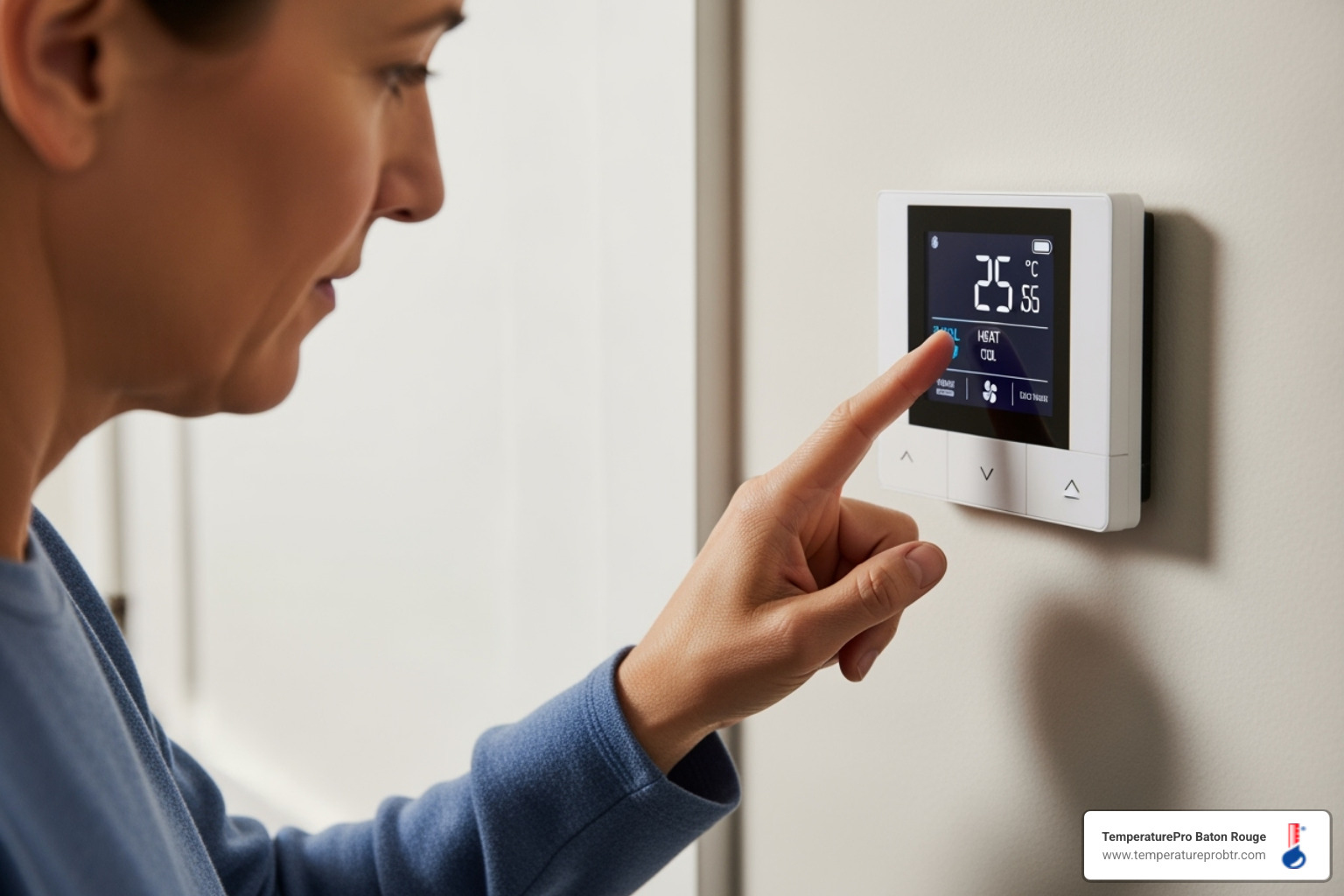
Checking Your Thermostat: The Command Center for Your Heat
Your thermostat controls your heating system, so it's the first place to check. First, ensure it's set to "HEAT" mode and the temperature is set higher than the current room temperature. If not, the system won't get the signal to turn on.
Next, check the fan setting. If it's on "ON," the fan will run constantly, blowing air even when the furnace isn't heating it. This creates the sensation of cold air. Switch the fan to "AUTO" so it only runs when producing heat.
Finally, if you have a digital thermostat, low batteries can disrupt communication with your furnace. Swapping in fresh batteries is a quick fix that often solves the problem. If you have an older thermostat, it might need calibration, but this is less common. For more insights, check out Why Is Cold Air Coming Out When the Heat Is On?
How a Clogged Air Filter Causes heating blowing cold air in Port Allen, LA
A clogged air filter is a very common cause of heating problems and the easiest to prevent. Your filter traps dust, pet hair, and other debris. When it gets too dirty, it severely restricts airflow.
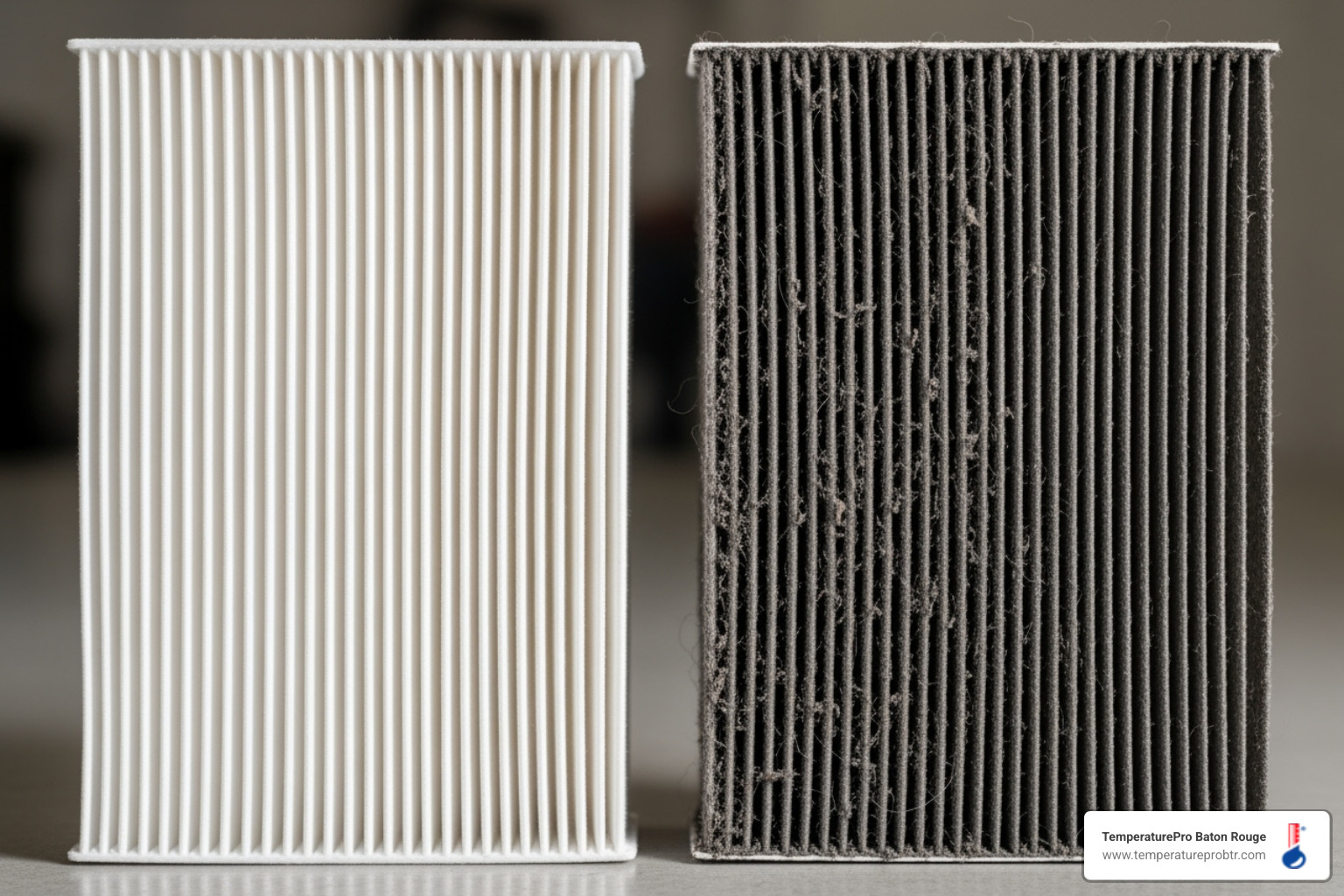
Your furnace needs this airflow to function safely. Without it, the system can overheat. To prevent damage to the heat exchanger, a critical component, a safety switch will shut the furnace down. The fan, however, may continue to run, pushing unheated air through your vents. This cycle of overheating and shutting down puts serious strain on your system.
Check your air filter monthly during the heating season. If you can't see light through it, it's time for a replacement. This simple task takes minutes and can save you from the frustration of heating blowing cold air in Port Allen, LA.
Common Reasons Your Heating is Blowing Cold Air in Port Allen, LA
If simple troubleshooting doesn't work, the problem may lie deeper within your system's components. When one of these parts fails, cold air is often the result. Here are the most common culprits.
Ignition System and Pilot Light Problems
For a gas furnace, the ignition system is what creates heat. If it fails, you'll only get cold air. Older furnaces use a standing pilot light, a small, continuous flame. If this flame goes out, the burners won't ignite. If it won't stay lit after relighting, you have a larger problem like a faulty thermocouple.
Newer furnaces use an electronic ignition. A common issue here is a dirty flame sensor. This safety device confirms a flame is present before allowing gas to flow. If it's coated in soot, it can't detect the flame and will shut off the gas. The blower may keep running, but no heat is produced. Problems with gas valves, pilot lights, or ignition systems are safety concerns and are best handled by a professional.
Clogged Condensate Line
High-efficiency furnaces save energy but also produce water as a byproduct. This water is drained away through a condensate line. In Louisiana's humid climate, this line can get clogged with algae or debris. When the line backs up, a safety float switch triggers an automatic shutdown to prevent water damage. Your blower fan may continue to run, circulating cold air. You might see puddles near your furnace or hear gurgling, which are signs of a clog. Persistent blockages require professional service to ensure the line is fully cleared.
Leaky Ductwork: A Hidden Cause for Heating Blowing Cold Air in Port Allen, LA
Your ductwork is a delivery system for warm air. If it has leaks, that heated air escapes into your attic or crawlspace before it reaches your rooms. Leaks develop over time as a house settles or from pest damage. The result is that your system runs constantly, but your home still feels cold, and your energy bills rise. A key sign of leaky ducts is uneven temperatures. While you can seal small, visible leaks with mastic sealant or foil tape (never use standard duct tape), finding and sealing an entire system's worth of leaks is a job for professionals.
Heat Pump Specific Issues
Heat pumps have unique reasons for blowing cold air. The most common is the defrost cycle. As your heat pump extracts heat from the outside air, ice can form on the outdoor coil, especially in Louisiana's humid winters. To operate efficiently, the system must melt this ice by temporarily reversing into cooling mode for 5-15 minutes. While auxiliary heat usually kicks in, you might feel cooler air from the vents. This is normal.
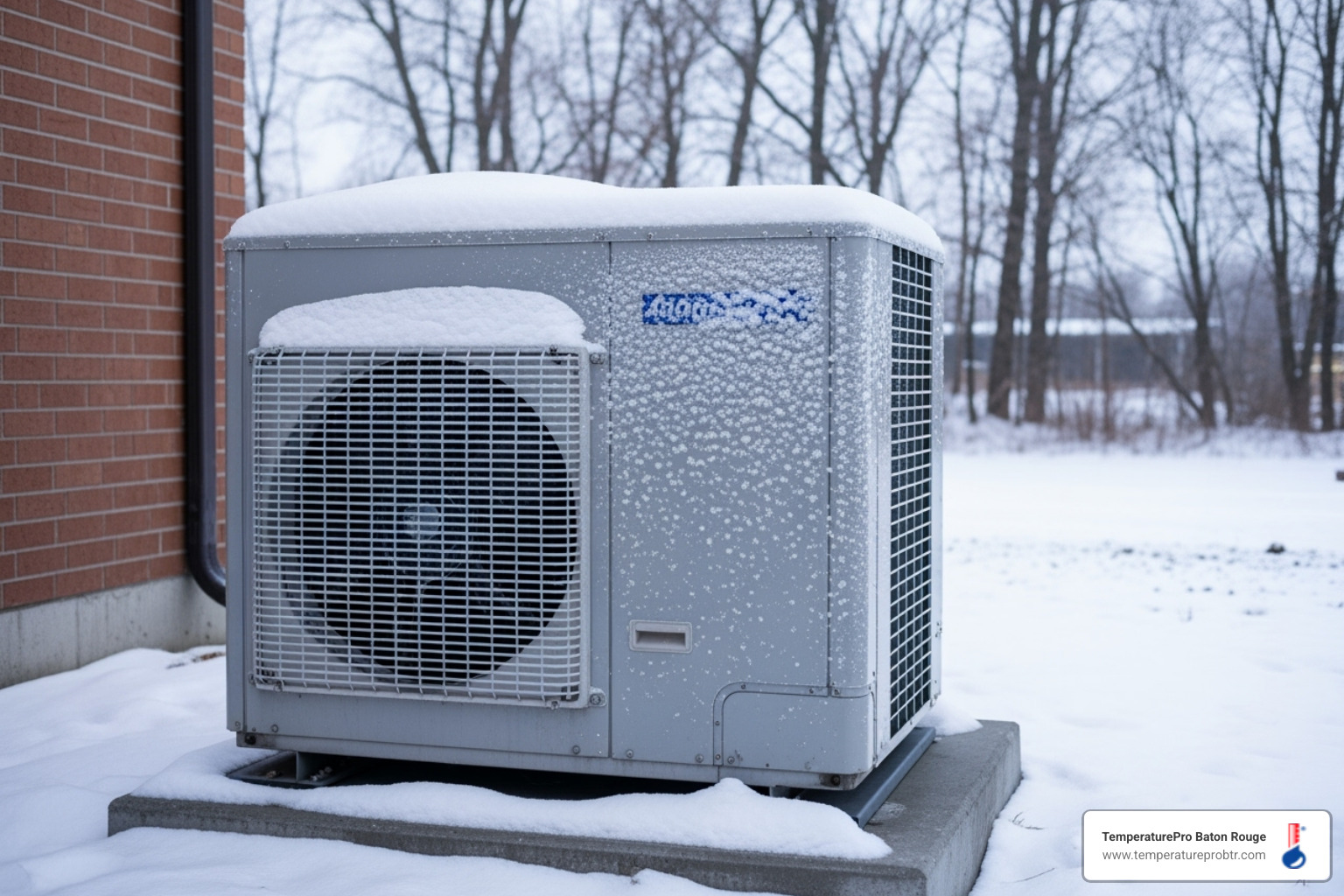
A more serious issue is a failing reversing valve. This component switches the system between heating and cooling. If it gets stuck in the cooling position, you'll get cold air even when you call for heat.
Another problem is low refrigerant. If your system has a leak, it won't have enough refrigerant to transfer heat effectively, resulting in lukewarm or cool air. Refrigerant issues are complex and require a licensed technician. For more details, see resources on troubleshooting cold air from your heat pump.
When to Call a Professional for Heater Repair in Port Allen
While some heating problems are simple DIY fixes, many issues that cause heating blowing cold air in Port Allen, LA require professional expertise. Modern HVAC systems are complex, and attempting repairs without proper training can be unsafe or cause more damage. If you're ever uncertain, it's best to call a certified technician.
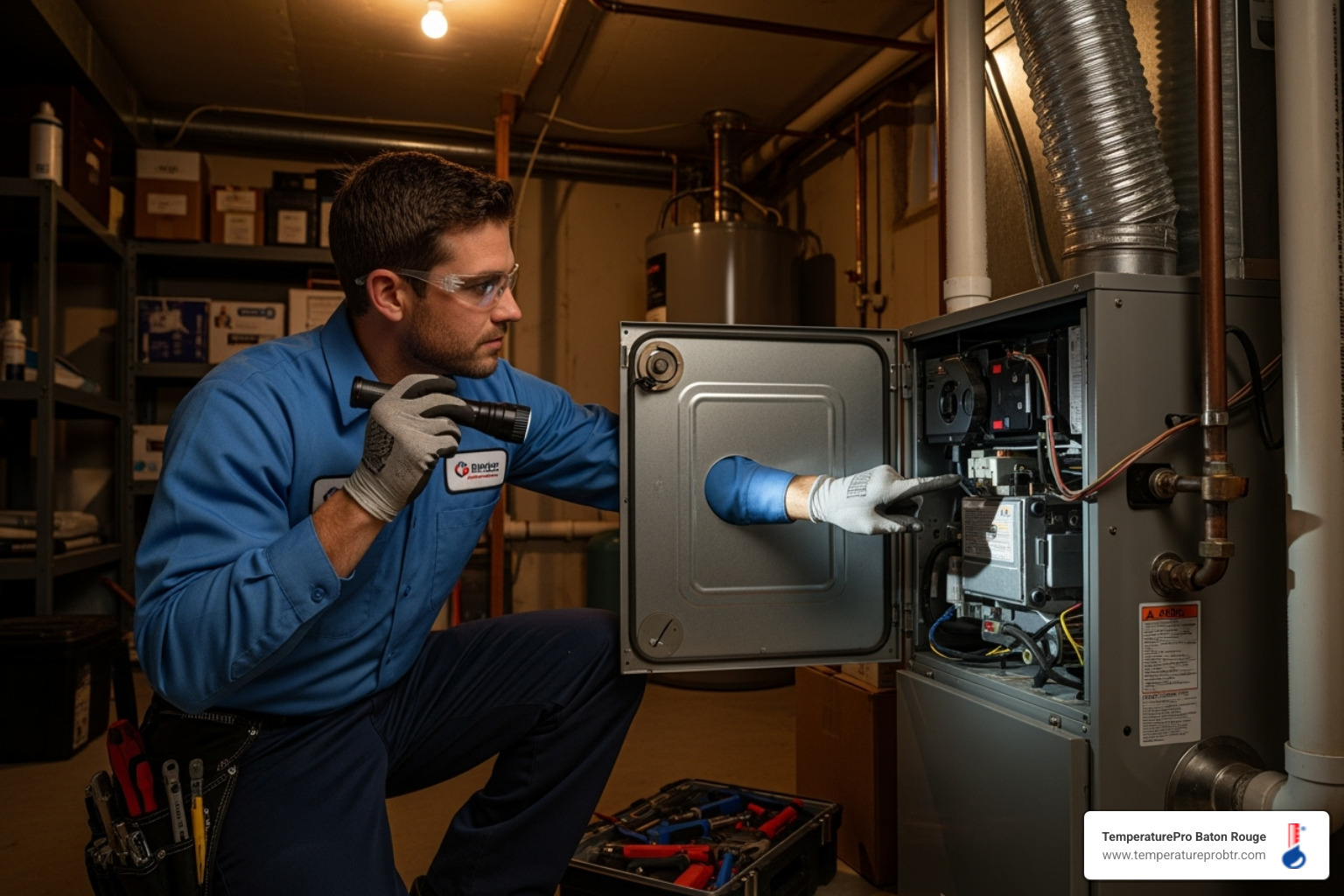
Warning Signs That Demand an Expert's Attention
Your system often gives warning signs before it fails. Knowing them helps you call for help before a small issue becomes a major one.
- Strange noises: Grinding, squealing, or banging sounds indicate mechanical problems like failing motors or loose parts that require professional attention.
- Unusual smells: A persistent burning smell suggests overheating electrical components. If you smell rotten eggs, you may have a natural gas leak. This is an emergency: leave your home immediately and call your gas provider and a professional from a safe location.
- Frequent cycling: If your system turns on and off constantly, it's working inefficiently and putting excess wear on components. This needs a professional diagnosis.
- Yellow pilot light: On a gas furnace, the pilot flame should be blue. A yellow or flickering flame indicates incomplete combustion, which can produce deadly carbon monoxide. This requires immediate service.
- Water leaks: Puddles around your furnace point to a blocked condensate drain, which can cause water damage and lead to mold growth.
- High energy bills or uneven heating: A sudden spike in your bills or rooms that never get warm are signs your system is struggling with inefficiency or poor heat distribution.
Repair vs. Replace: Deciding the Future of Your Heating System
When facing a major repair on an older system, you have to decide whether to fix it or invest in a new one. Consider these factors:
- System Age: Heating systems typically last 15-30 years. If yours is in the latter half of its lifespan, replacement may be more cost-effective than a major repair.
- Repair Frequency & Cost: Are you calling for repairs every year? If a single repair is a significant portion of a new system's cost, investing in a new, reliable unit often makes more sense.
- Energy Efficiency: Older systems are less efficient. A new high-efficiency unit can significantly lower your utility bills, providing long-term savings.
- Comfort: If your system struggles to heat your home evenly, a new unit can restore consistent comfort.
Our team can help you make an informed decision, providing an honest assessment of your system and explaining all your options.
| Feature | Repairing an Older System | Replacing with a New System |
|---|---|---|
| Initial Cost | Lower | Higher |
| Long-term Cost | Potentially higher (frequent repairs, high energy bills) | Lower (fewer repairs, increased efficiency) |
| Efficiency | Lower (older technology, wear and tear) | Higher (modern, energy-efficient technology) |
| Reliability | Decreasing (more prone to breakdowns) | High (brand new components, warranty) |
| Comfort | Potentially inconsistent heating | Consistent, even heating |
| Lifespan | Extended by a few years (if repair is successful) | 15-30 years (new system) |
| Technology | Limited to existing features | Access to smart features, improved air quality options |
Frequently Asked Questions about Heaters Blowing Cold Air
When you're dealing with heating blowing cold air in Port Allen, LA, you naturally have questions. Here are the answers to the questions we hear most often.
Why does my heat pump blow cool air sometimes, even when it's working?
This is usually a normal part of your heat pump's operation called the defrost cycle. To heat your home, your heat pump pulls warmth from the outside air. In Louisiana's humid winters, this can cause ice to form on the outdoor coil, reducing efficiency. To melt the ice, the system briefly reverses itself for 5-15 minutes. During this time, the air from your vents may feel cooler. This is a sign your system is maintaining itself. However, if the air is constantly cool or the cycle happens too frequently, it could indicate a problem that needs a professional diagnosis.
Can a dirty flame sensor be cleaned as a DIY project?
While it's technically possible, we strongly advise against it. The flame sensor is a critical safety component in a gas furnace. Its job is to shut off the gas supply if it doesn't detect a flame, preventing dangerous gas buildup. Cleaning it requires turning off power and gas, and the sensor itself is delicate and easily damaged. Given the safety risks involved with gas appliances, this task is best left to a trained technician. A professional will clean and inspect it safely during a routine maintenance visit, ensuring your furnace operates correctly and safely.
How often should I have my heating system maintained to prevent problems?
To prevent problems like heating blowing cold air in Port Allen, LA, we recommend professional maintenance once a year. The best time for a heating tune-up is in the fall, before the cold weather sets in. During a maintenance visit, a technician inspects, cleans, and lubricates your system's components. This proactive service catches small issues before they become major breakdowns, improves energy efficiency, extends the life of your equipment, and ensures your system runs safely. It's the best way to ensure reliable warmth all winter.
Get Your Heat Back with Trusted Local Experts
When your heating blowing cold air in Port Allen, LA, disrupts your home's comfort, a solution is needed. We've covered simple DIY checks like thermostat settings and air filters, as well as more complex issues like ignition failures and leaky ductwork. While some fixes are simple, many heating problems require the tools and expertise of a professional. Attempting to repair electrical or gas components can be dangerous.
At TemperaturePro Baton Rouge, we're a family-owned, veteran-owned business that understands Port Allen's climate. Our technicians diagnose problems accurately and provide honest solutions. We're committed to restoring your comfort quickly and safely, whether it requires a simple repair or a system replacement. We'll explain your options clearly so you can make the best decision for your family.
Don't let a faulty heater leave you in the cold. Trust your local experts to get your heat back on.
Schedule Your Heating Service Today and experience the difference of working with a team that values integrity and service.
Customer
Testimonials
Go With Experience
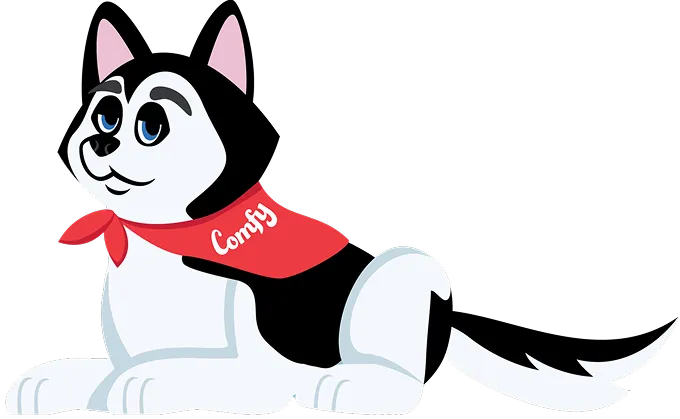
Read other blog posts
